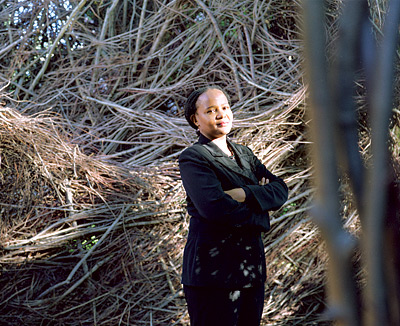The year 2004 should have been glorious for Edwidge Danticat ’93 MFA. That spring she saw her novel The Dew Breaker published to critical acclaim, and in July she discovered she was pregnant.
But those joys were overshadowed by two cataclysmic nine-year-old father, Miracan Danticat, a Haitian immigrant who’d settled in New York City, was diagnosed with end-stage pulmonary fibrosis. His lungs were too scarred to breathe.
Danticat’s eighty-one-year-old uncle Joseph, a pastor who had raised her in Haiti, was en route to visit his brother, but wound up shackled in Miami’s infamous Krome Detention Center.
Joseph Dantica (he spelled his name without the final t) held a valid visa and had visited his American relatives many times over the previous thirty years. But things were bad in

Less than a year later, Miracan Danticat, too, died, and the brothers were buried together in New York City, in a cemetery in Queens—sharing a tombstone after thirty years apart. Edwidge Danticat found her only solace in the fact that before her father died he was able to hold his new granddaughter and namesake, Mira.
Brother, I’m Dying is a portrait of these two men, each of whom loved Edwidge Danticat as a daughter. Her parents moved to New York City when she was four, leaving her and her younger brother in the care of their aunt and uncle until it was possible for the children to emigrate eight years later. When she finally was reunited with her parents in the United States, she grieved for the father she was losing in Haiti.
Danticat tells the story of her father’s and her uncle’s deaths in a cool, dispassionate narrative into which she weaves a wealth of Haitian history and folk tales.
In oneof those stories, Father God and the Angel of Death are walking through Bel Air, arguing as to which of people love more. God knocks on a poor woman’s door asking for water, but she refuses; she has only enough for her family. “The only one I’d give my water to right now is the Angel of Death,” she says.
“Why?” God asks.
“Because the Angel of Death doesn’t play favorites.”
Charlotte Bruce Harvey is the BAM’s managing editor. To read her report on Danticat's visit to campus in September 2007, click here. Read Harvey's review of Danticat's novel The Dew Breaker here.




